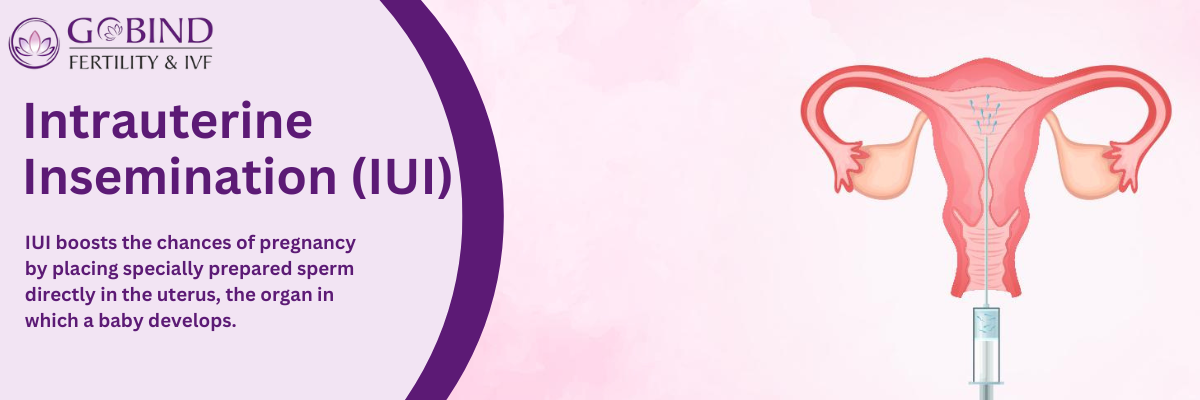

Intrauterine Insemination (IUI)
Intrauterine Insemination (IUI) is a procedure that treats infertility. IUI boosts the chances of pregnancy by placing specially prepared sperm directly in the uterus, the organ in which a baby develops.
IUI is a procedure done in cases where sperm count is slightly low and female is having patent tubes and mild other problems.in this ovulation study for wife is done,when follicle is about 18x18mm size injection for oocyte maturation and rupture is done and within 30-34 hours semen is washed and inserted into uterine cavity through iui canula and progestrone support given later on.pregnancy test is done after 14-16 days.sucess rate of iui is 10-15%.
Before pursuing more sophisticated treatments like IVF, IUI is frequently advised as a first-line treatment for couples experiencing specific forms of infertility. Although it offers a less invasive and more cost-effective alternative to IVF, its success rates are lower, especially for older women or those with more serious reproductive problems.
A reproductive procedure called intrauterine insemination (IUI) involves injecting prepared sperm right into the uterus at the moment of ovulation. The likelihood of conception rises when more sperm cells are able to enter the fallopian tubes thanks to IUI.
Our IUI program at the Fertility Center uses bloodwork and ultrasounds to closely track each patient's cycle and pinpoint the best timing for insemination. One or more mature eggs can be produced by the ovaries being stimulated with medication.
The actual IUI process is short and doesn't involve any anaesthetic. It includes:
1) In our andrology lab, semen is collected and prepared to separate the best motile sperm.
2) A tiny catheter is gently inserted through the cervix to implant the processed semen directly into the uterus
IUI is far less expensive and invasive than IVF. It is frequently suggested as an initial course of treatment in instances of:
- Infertility without apparent cause
- Low sperm motility/count
- Issues with ovulation
- Cervical difficulties like hostile mucus
- unexplained infertility
Mild PCO
Grade 1 and Grade 2 Endometriosis.
Our compassionate staff offers emotional support and direction during the whole IUI cycle and procedure.
IUI FAQ:
Q: How is IUI different from donor IUI
A: IUI is a specific type of artificial insemination where the husband’s sperm is placed directly in the uterus whereas in donor IUI sperms are taken from semen bank,in such cases the husband is azoospermic.
Q: Is IUI painful or requires anaesthesia?
A: No, the IUI procedure itself is not painful and does not require any sedation or anesthesia.
Q: How long does the IUI process take?
A: Most patients undergo 1-3 cycles of ovarian monitoring (bloodwork/ultrasound) for around 2 weeks before the IUI is performed.
Q: Does IUI increase chances of multiple births?
A: Yes, there is a higher chance of twins/multiples with IUI compared to natural conception, especially if ovulation induction medications are used.
Q: How soon can I take a pregnancy test after IUI?
A: You can take a home pregnancy test about 2 weeks after your IUI cycle. Our office will also perform a blood pregnancy test if needed.
Q: What are the success rates with IUI?
A: Success rates can vary based on factors like age, cause of infertility, medications used, etc.in general success rate is between 10-15%..

















